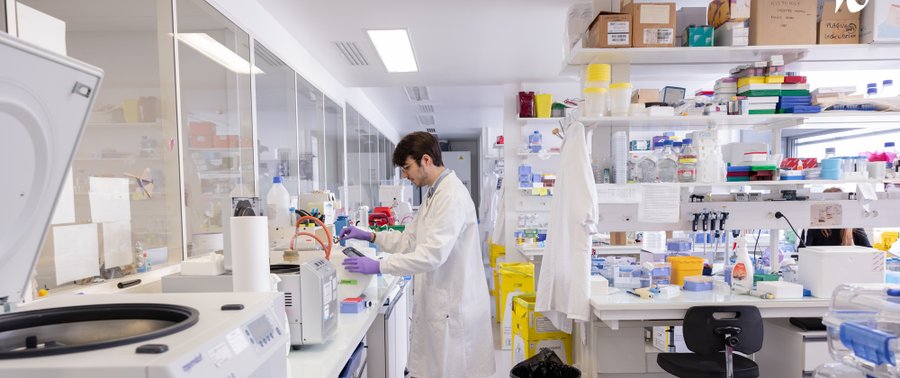Computational Biologist - Single cell & Long read analyses (M/F)
Le poste
Descriptif du poste
We are seeking a highly motivated and skilled computational biologist to join our translational research team working at the interface of immunology, genomics, and intestinal pathology. The successful candidate will investigate the molecular continuum linking between Mendelian, non-Mendelian forms of autoimmune enteropathies and intestinal lymphomas. A particular focus will be on understanding why some patients with celiac disease fail to respond to a gluten-free diet, including those with refractory celiac disease types 1 and 2 (RCD1 and RCD2) and non-responsive celiac disease (NRCD). To achieve this, we use cutting-edge technologies such as single-cell sequencing and long-read RNA sequencing to study individual cells and identify genetic changes that may drive disease progression and treatment resistance.
The recruited scientist will analyze and integrate single-cell multi-omics datasets (including scRNA-seq, CITE-seq, scTCR-seq/VDJ-seq), whole-exome sequencing (WES), and will help develop novel bioinformatic pipelines for long-read RNA sequencing (e.g., Nanopore) generated from 10x Genomics libraries, with a focus on identifying somatic mutations and clonal structures.
She/he will work in close collaboration with the bioinformatics core facility and experimental biologists to perform quality control, multi-modal integration, lineage and trajectory analysis, and mutational mapping in T cells, in the context of disease evolution from inflammation to lymphomagenesis.
This position provides a unique opportunity to contribute to high-impact research at the frontier of autoimmunity and cancer genomics.
Profil recherché
Qualifications :
Master’s or PhD degree in Bioinformatics, Genomics, or Computational Biology;
Solid experience in single-cell data analysis using tools such as Seurat, Scanpy, Monocle, Signac, Velocyto, etc.;
Proficiency in NGS workflows and bulk data pipelines (STAR, Picard, samtools, DESeq2, EdgeR, etc.);
Experience with or strong interest in long-read transcriptomic analysis (Nanopore or PacBio), and familiarity with 10x Genomics-based single-cell library preparation;
Strong programming skills in R, Python, and Bash;
Familiarity with Unix/Linux environments;
Understanding of immune repertoire analysis and somatic variant calling would be a strong asset;
Prior knowledge in mucosal immunology or lymphocyte biology is a plus;
Excellent communication skills and fluency in written and spoken English.
Conditions :
Start date: As soon as possible;
Contract: 12 months renewable;
Location: Paris, France (Institut Imagine).
Salary :
Salary will be established based on experience.
Application :
Please send your application in English (including CV, motivation letter, and references)
Envie d’en savoir plus ?

Rencontrez Guillaume, Doctorant en maladies génétiques cutanées

Rencontrez Mégane, Chercheuse post-doctorante
D’autres offres vous correspondent !
Ces entreprises recrutent aussi au poste de “Sciences de la vie et biotechnologie”.
Postdoctoral Position, Junior Scientist – Genetic in ophthalmology (M/F)
Institut ImagineCDD / TemporaireParisTélétravail non autoriséPharmaceutique / Biotechnologique, Santé550 collaborateurs



